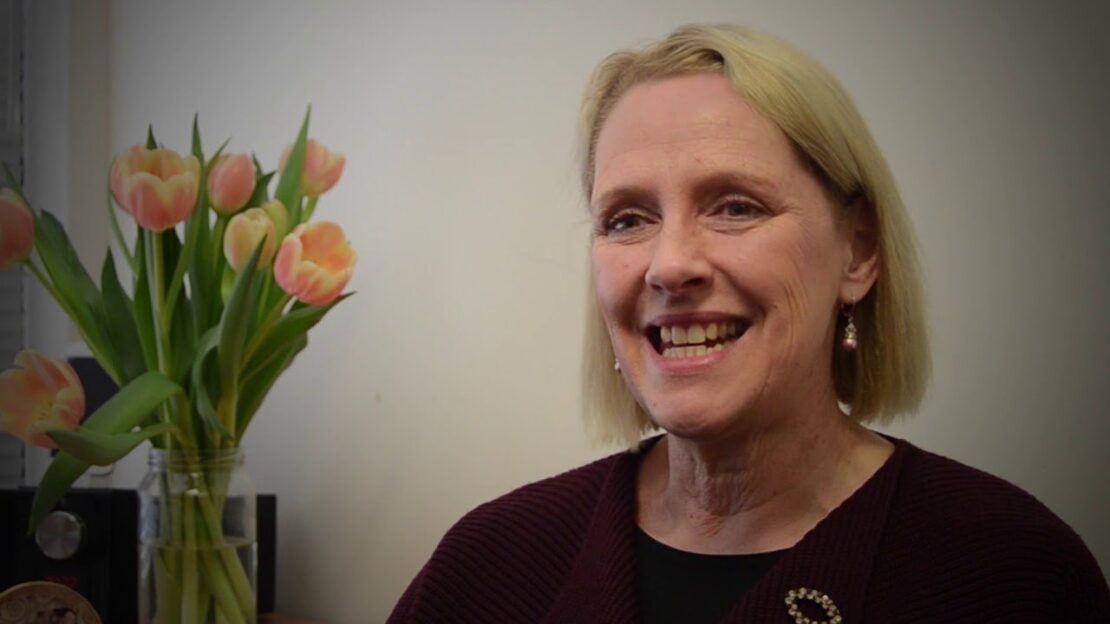Last week, I met someone who is bearing the memory of another so powerfully that she came alive for me. The memory was of a religious sister of 93 who had died suddenly. She had lived in a religious community and the shock of her death had affected the community members profoundly. As we were walking around the convent, the local leader told me about the life of this much-loved woman. She was highly educated, had worked overseas and been a principal of one of their schools. She had great humour, she loved celebrations, she … there were so many examples. The stories that were told about this woman were so vivid that I could feel her walking alongside us down the corridor.
In a 2013 homily celebrating the International Day for Catechists, Pope Francis observed that a catechist is:
‘a Christian who is mindful of God, who is guided by the memory of God in his or her entire life and who is able to awaken that memory in the hearts of others. This is not easy! It engages our entire existence! What is the Catechism itself, if not the memory of God, the memory of his works in history and his drawing near to us in Christ present in his word, in the sacraments, in his Church, in his love? Dear catechists, I ask you: Are we in fact the memory of God? Are we really like sentinels who awaken in others the memory of God which warms the heart?’
And I couldn’t help but think that this is the privilege that is offered to all people of faith. We are guided by the memories of generations of people who have lived, loved and believed in God and Jesus. And no more powerfully than during this Lent period, I suspect, when so many memories of God are available to us. So, as we move into the fifth week of Lent, let’s do a recap!
On Ash Wednesday, the ancient call was to turn back to God, and we were reminded that God sees all. A call to invite God anew into our lives. ‘Be with me, Lord when I am in trouble’ was the call of the Psalm (91) for the first Sunday of Lent and the gospel reminded us that the goodness of Jesus overcomes even the greatest of temptations that any evil spirit may offer. We may have reflected upon the desert times in our lives when the bad spirit entered our hearts. The story of the transfiguration greeted us on the second Sunday of Lent with the call to listen to Jesus, God’s son. And we may have wondered where the word of God was speaking into our lives. On the third Sunday, we listened to the story of the fruitless fig tree. Rather than cut it down, the parable teaches of the need to cultivate the soil around it so that it may bear fruit in the future. (Luke 13:1-9). And we may have wondered, what is it that we are cultivating in our life at the moment?
Last Sunday the complex story of the father and his two sons greeted us. How did our hearts respond to the characters this year, I wonder? Did we resonate with the one who ran away to escape, or the one who, with open arms, was able to forgive so readily? Or perhaps it was with the one who felt overlooked and envious. And this week, at the dawn of a new month, we are reminded of all those who are so quick to condemn another. And we remember all the times that we have felt humiliated and belittled. And we may notice that Jesus, in his response, calls all in the story to account. Not with weapons or harsh words, just a sentence and a look that speaks into their hearts and a gesture that restores even the one accused to dignity. And now, we set our sights on the journey to Jerusalem.
Over these next days, we will once again reach through the ages and join with the earliest disciples as they walk the way of the Cross with Jesus. We will place our troubles on the bowed Christ figure on Good Friday – because we know that the shoulders of Jesus are strong enough to carry any burden. We will wait in silence before the tomb because we know that there are times in life when our hearts are entombed with sorrow or anger and ‘all we can do is put our mouths to the dust … and pray … and wait. Knowing that, at some future time, the stone will again roll away’. (Ron Rolheiser, 2018)
And then, in the lighting of a candle on Easter night, in the splash of water and the echo of memory that draws us into the story from an ancient world, twenty-first century believers will gather once again. We will stand with the women at the empty tomb and marvel that Jesus, who once was dead, is alive.
‘Easter is about “tomb watches,”’ Joyce Rupp writes. ‘It is about love that keeps vigil and waits and believes in life, no matter how dark and empty and cold the inner space feels. Easter is about hope that is willing to sit in the tomb while it trusts in transformation. Easter is about faithful companions who keep watch with us and cheer us on as we wait for our inner resurrection.’ (Out of the Ordinary, p. 69)
And it is about being the bearers of this precious memory of Jesus – the one who lived, died and rose from the dead. So, over these next days as we join with those who followed Jesus to the Cross – we remember what it means to journey with him to beyond the cross. To be mindful that the memory of God guides us and that we, too, can awaken the memory of this God in the hearts of those around us.
May our hearts be enlivened by this memory, and may we join with the earliest disciples and take into our hearts the message to look for God among the living, not the dead.
By Cathy Jenkins




Comments
Denise Mulcahy
Thank you Cathy for this thought-provoking and extremely helpful reflection as we look back over the scriptures of this Lent and prepare for Holy Week.
Add Comment